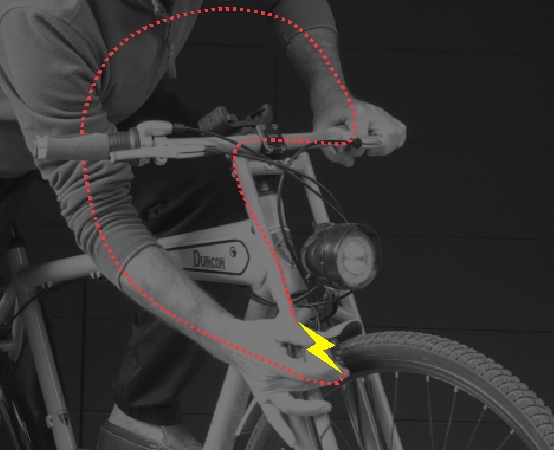When I was young I remember that I often used to adjust with the right hand the sidewall dynamo connection-wire sometimes accidentally coming loose while cycling.
Making sure to secure at the same time with the left hand the handlebar on a not very well insulated grip I remember also that some perceptible and quite annoying
leakage current was indeed crossing my body.

Well, IEC-International Electrotechnical Commission states that for voltages around 50V human body on a hand-to-hand pattern has an impedance
of about 1500 Ohm or even less, that one significantly depending on actual body mass, skin conditions, contact area, applied voltage, frequency, etc.
Now the point: at 50 km/h at no-load conditions, or on a 1500 Ohm load with no significant difference at all, out of a dynamo without a built-in voltage protection
you may have something like 50V that applied to your body might induce in turn something like 30 mA.
Something definitely unlikely to happen, I agree, but still possible … especially for grounded hub dynamos and spoilt head lamps with exposed/not well protected live parts.
From the point of view of a possible exposure hazard IEC worked out the below Current-vs-Time plot identifying four zones:
Zone 1: represents the limit for current perception estimated to be 0.5 mA
Zone 2: represents the danger threshold generally recognized still to have no dangerous physiological effects
Zone 3: it’s a sort of an “alert” area coming just before any possible atrial fibrillation, mainly characterized by yet reversible physiological effects
such as muscular contraction (tetanization), difficult respiration and cardiac disturbances. As you can see 30 mA for one sec may already have some annoying effect.
Zone 4:is characterized by permanent effects, such as fibrillation, depending, beyond current and time, also on specific health conditions.
Contact times as low as 10 ms may be lethal but fortunately these current values seem to be much higher than those ones actually supplied by a dynamo at 50 km/h !!
